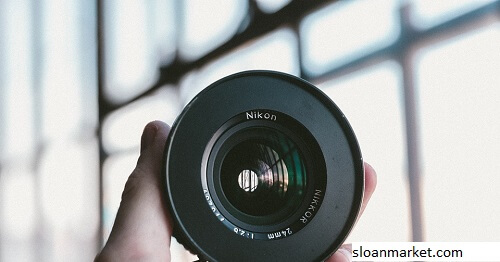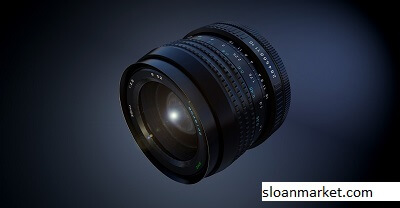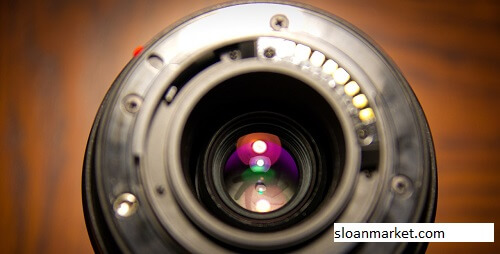Disposable Vs Reusable Contact Lenses: A Comprehensive Assessment of the US Market
Contact lenses have been one of the convenient solutions for most people with optical deficiencies, providing them with a better and easier alternative for correction glasses. The available ranges of disposable and reusable contact lenses in the market usually confuse most consumers to choose between the different types. This article will discuss the differences between disposable and reusable contact lenses and the pros and cons of each lens type as well as market trends in the United States. Before we provide an overview of all the differences, let’s briefly answer five FAQs regarding contact lenses that would be of interest to the readers to make informed decisions.

Contact Lens Types: Disposable vs. Reusable Contact Lenses:
1. Disposable Contact Lenses:
Disposable contact lenses are intended to be used for a few days, often for one day or up to two weeks depending on the type. Once their recommended wear time is over, they are discarded, and a fresh pair of lenses is required. Two types of disposable contact lenses fall into this basic category:
- Daily Disposable Lenses: Daily disposable contact lenses are lenses used only one time. The user wears them all day and discards them at night. These are rather thin and convenient, especially for users who do not want to spend time either cleaning or storing lenses.
- Frequent Replacement or Two-week or Monthly Lenses: These lenses are utilized for a longer period; they last between two weeks and one month, depending on the type and brand. At this point, they have to be disposed of and a new set has to be acquired and put in use. While daily disposable lenses do not need to be cleaned and stored in a disinfecting solution, frequent replacement lenses have to be cleaned and stored in a disinfecting solution when not in use.
Disposable Lenses Advantages:
Convenience: With daily disposable lenses, no cleaning and storage is required and they are found ideal for busy persons and travelers.
- Hygiene: The possibility of buildup in proteins, lipids, and debris is reduced with disposable lenses since they are frequently replaced. This reduces the chances of infections and irritation.
- Comfort: Usually, daily disposable lenses have advanced materials as well as technologies that enhance moisture retention as well as reduce dryness.
- Health and Safety: Since there is less accumulation of bacteria, disposable lenses might be safer for people who will easily develop an eye infection.
Disadvantages of Disposable Lenses:
- Cost: Disposable lenses are typically more expensive in the long run since they should be replaced at fixed time intervals.
- Environmental Impact: Disposable lenses as a product that is used once results in most waste, which gets produced when such lenses are not disposed of properly.
2. Reusable Contact Lenses:

Reusable contact lenses or extended-wear lenses are designed to be worn for a longer period, ranging from one to three months before they require replacement. Unlike disposable lenses, reusable ones need to be cleaned and disinfected using lens solutions regularly. Reusable contact lenses may be made of hydrogel or silicone hydrogel, which helps increase oxygen supply to the cornea.
Reusable contact lenses can be divided into two types:
Soft Contact Lenses Soft contact lenses are the most common type of re-wearable lenses. The owner can maintain comfort and flexibility through them. The shape is such that the contact lenses are shaped in a way that they mold to follow the shape of the eye, thus making them as natural as possible to fit in.
- The Rigid Gas Permeable Lenses: This is a stiffer lens that is capable of producing crisp vision than its soft counterparts. However, it takes a longer time before getting accustomed to it, and one may not find it comfortable. One advantage of RGP lenses is that they are more resistant compared to the soft types and can last longer if taken care of well.
Advantages of Reusable lenses:
- Cost-Effective: The up-front investment in a reusable lens will probably be higher, but they save more money in the long term because they must be replaced less often.
- For the Environment: Reusable lenses also create much less waste than daily disposables, especially when properly cared for.
- Better for Extended Wear: If you are looking for a lens that can be worn for extended periods and is removed only at night or months later, greater flexibility is offered by re-wearable lenses.
Disadvantages of Reusable Contact Lenses:
- Care: The reusable lenses need to be cleaned and disinfected. Not doing this may lead to infection or irritation of the eyes.
- Discomfort: Many users suffer discomfort associated with reusable contact lenses, especially if they use them for long periods.
- Increased Chance of Keratitis: Poor care or lengthy use of reusable contact lenses increases the chances of getting an eye infection, especially keratitis.
Market Trends in the United States:
Contact Lenses the United States The U.S. market in contact lenses has expanded significantly, as technology in the lenses improves, and the population of the United States gets older because the rates of myopia, or nearsightedness are increasing. Disposable lenses comprise the largest share of the U.S. market, primarily due to their convenience, as daily disposable lenses are preferred. The American Optometric Association reports that almost 45 million people in the U.S. wear contact lenses and many have opted for disposables.
Key Drivers of Disposable Lens Popularity:
- Busy Lifestyles: Consumers looking for an easy solution enjoy their daily disposable lenses, as they cause the least hassle.
- Advancements in Technology: Manufacturers have made disposable lenses more comfortable, retain moisture longer, breathe better, and thus are even more attractive.
- Health and Hygiene Concerns: As there is improved awareness about one’s eye health, hygienic benefits that disposable lenses offer can be a hot favorite, as most are glued to the market for it.
Issues of the Disposable Lens Market: - Environmental Concerns: The existence of disposables is primarily a source of plastic pollution. Manufacturers increasingly find themselves in a place where they have to make such products more sustainable or develop alternatives for recycling.
- Cost Sensitivity: Even though it would prove quite convenient, disposable lenses are expensive for long-term usage. This would limit demand among price-sensitive consumers.
These lenses may not be the market choice, owing to the dominance of disposables; however, it is preferred by a section of people due to cost-effectiveness and sustainability. People who need specialized vision care (in terms of refractive conditions like astigmatism and presbyopia) highly tend to adopt reusable lenses.
5 FAQs About Disposable vs Reusable Contact Lenses:
1. Which one is the best-disposable or reusable contact lenses?
Disposable lenses depend on the lifestyle, budget, and also personal needs of the vision. Ideally, disposable lenses are appropriate for people who like convenience and hygiene and do not want to go to the bother of cleaning or storing lenses. Reusable lenses will prove more cost-effective in the long term, although they require daily cleaning and maintenance, so they fit in better with people who are not anxious about these activities. Check with an eye care professional for advice on the best kind for your eyes and vision.
2. Are daily-wear lenses available in a reusable kind?
Of course, you can use reusable lenses daily, but they still need to be cleaned and disinfected at night. Some reusable contact lenses especially the extended-wear types may also be left overnight (with a prescription from an eye care provider), of course depending on the type of lens material and your eye health. So, always ask your optometrist how to use them safely.
3. Are new-generation disposable lenses more comfortable than their reusable counterparts?
People with sensitive eyes and lens wearers for many hours usually find daily disposable lenses more comfortable. They are thinner in size and have fewer protein deposits and other materials that irritate since they are replaced often. However, comfort is subjective; it varies from person to person and product line and brand.
4. Are there any ecological issues with disposable contact lenses?
Yes. Disposable contact lenses have created plastic waste through daily disposable lenses that are used only once. Although some companies are searching for ways to have even more environmentally friendly packaging or recycling initiatives in place, disposable lenses have a significant impact on the environment. In contrast, reusable lenses generate very little waste and become a much more “green-friendly” option for those who care about environmental complications.
5. Disposable – reusable lenses. Are they available to change between them?
The lenses can be disposable, but the reusability can be switched between them. However, all this should first be discussed with the eye care provider before starting or changing anything. There are many types of lenses with varied care needs, so your optometrist will guide you on the right choice according to the health of your eyes, lifestyle, and budget. Switching lenses does take some kind of adjustment time of course; sometimes, your eyes might need some getting used to material change or fit.
Conclusion:

Disposable vs reusable lenses are mainly based on personal preference, lifestyle, and budget. Disposable contact lenses might appear as easier, cleaner, and more comfortable, but surely it is a very pricey long-term proposition and cannot be very friendly to the environment. Reusable lenses are relatively cheaper and more economical for the environment but demand much care and maintenance. Each finds room for a growing US market with technological improvements making each increasingly comfortable, affordable, and sustainable. So, consult your optometrist and get the right lenses for your eyes and needs.